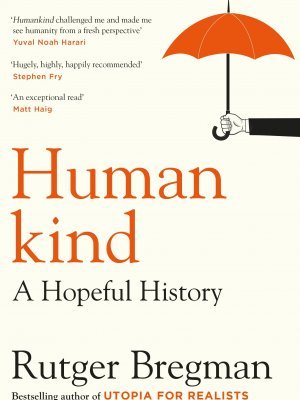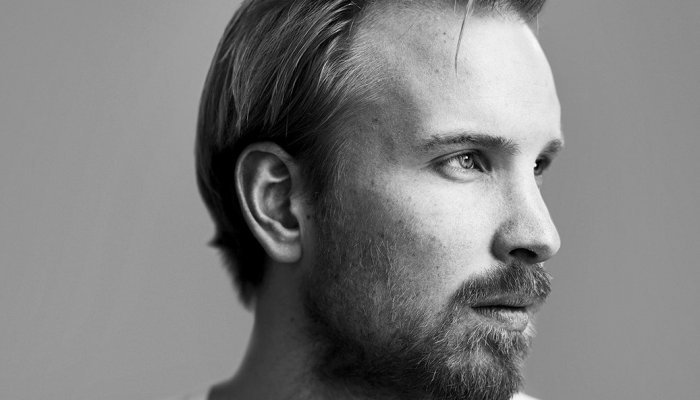Speaking to Acumen from his home in the Netherlands, Bregman suggests that the world had just emerged from a “40-year period that most would describe as the neoliberal era” whose central dogma was “that most people are just selfish, that we have to acknowledge that, and could even use it to our advantage if we just privatise everything and give capital free reign.”
He’s unconvinced of neoliberalism’s results: “Look at the state of our democracies, the rising inequality around the globe, the epidemic of anxiety and burnout and depression. Look at the state of our democracies.”
Covid-19 could be “a shifting point for our societies, where we leave the era of selfishness and competition and move into a different era where the most important values are cooperation and solidarity.” Bregman notes that this may already be happening and that ideas “that used to be dismissed as completely unrealistic and unreasonable have moved into the mainstream.”
He cites higher taxes on the rich, the universal basic income to eradicate poverty completely, and a Green New Deal to combat climate change. “Even the Financial Times, the world’s leading business newspaper, recently argued in an editorial that we need to reverse the policy direction of the past 40 years. So, it’s not just the crazy hippies or the academics in their ivory towers,” he says.
Hobbes vs Rousseau
Bregman arrives at this conclusion by re-examining our species and the age-old dichotomy: is a homo sapien just a savage ape, wearing a thin mantle of civilisation, or are we nobler, more gentle, and corrupted by the structures and society with which we have surrounded ourselves?
The former is an idea that has been perpetuated by philosophers across the centuries and perhaps best distilled by Thomas Hobbes in his magnum opus of 1651, Leviathan. Hobbes believed that life was “solitary, poor, nasty, brutish and short” and that although our hunter-gatherer forebears lived a life that was free, as Bregman puts it, “the consequences were horrific”.
This murderous free-for-all – “a condition of war of all against all” – could be solved according to Hobbes “if we put ourselves, body and soul, into the hands of a solitary sovereign…the Leviathan”. Bregman believes that dictators and despots have been using this concept to stifle freedom and dissent ever since.
The latter idea – that what we know as civilisation has corrupted and enslaved us – was defined by the French philosopher, Jean-Jacques Rousseau, writing 100 years after Hobbes.
Bregman is a believer. Like Rousseau, he starts very far back in time when humanity was still in the hunter-gatherer phase. Our ancestors behaved very differently then, he posits, with smaller families, far less hierarchy, a willingness to converse with strangers and absolutely no evidence of war. Far from being savages that would hunt and kill each other, Bregman believes we were fundamentally decent.
He doesn’t present a large amount of evidence for these assertions but moves onto somewhat firmer ground when he describes our transition from hunting and gathering to farming. It was a seminal moment and, according to Bregman, laid the foundations for our modern malaise.
The biggest part of the history of civilisation was a disaster.
“The biggest part of the history of civilisation was a disaster. When we invented agriculture, and we got these hierarchies, we started living in villages and cities. We ended up in a very different environment. Infectious diseases because we lived so close to each other, the age of warfare also started, and that’s been the case for a very long time. It’s only fairly recently, since the end of the Second World War, that we’ve made some progress. But then the question is, ’How sustainable is it really?’ We don’t know what we’ll live like a century or two centuries from now, and if you think about climate change, we may be dancing on top of a volcano. So this whole project that we call civilisation, historians are not sure yet whether it was worth the gamble,” says Bregman.
The end of innocence
But if life was so good back in the day as a hunter-gatherer, why did we give it up?
“It’s one of the great mysteries of our history,” Bregman replies. He suggests it could be that at first, in the fertile plains of Mesopotamia, farming was easy. But then came an early form of climate change, followed by larger populations, disease and a loss of hunter-gatherer knowledge.
Whatever the cause, it happened, and along the way came hierarchy – think kings, princes, despots and rulers – and war. From that followed mankind’s reputation as a killer.
The power of belief
This reputation has become what Bregman calls a ‘nocebo’: “Some ideas are just true no matter what you think about them. ‘Reality is this thing that’s still there even when you don’t believe in it’. I think that’s the quote…”
“But then there are also ideas that can become true if you believe in them. They can become self-fulfilling prophecies. This is true in human relationships, in friendship, and love. If you don’t believe in them, then certainly they’re not going to work out. And it’s also true in medicine. The most famous example here is the placebo effect – if you believe that a particular pill or injection is going to cure you, there’s a good chance that it will.
“But there’s also the opposite of that, which is called a nocebo. A nocebo is where you think something is going to make you sick, and it does because that’s what you believe. So, a doctor tells you to be wary of certain side effects and, sure, you’ll get the side effects because you were already expecting them.
“Our view of human nature works a little bit like that. If we believe that most people, deep down, are just selfish savages and are just designed for living lives that were nasty, brutish and short, then that’s what we’ll get out of them. It will create a society with schools and workplaces and a democracy and prisons that all bring out the worst in us. But if we turn it around and say, ‘No, wait a minute, most people are pretty decent’, then I think our view of human nature can create the kind of people that it presupposes.”
...he exposes the legendary Stanford Prison Experiment as nothing more than “shoddy science”...
Fact or fallacy
Nocebos are often backed by what appears to be solid, scientific evidence. Bregman takes great delight in laying waste to these supposed facts. For example, he exposes the legendary Stanford Prison Experiment as nothing more than “shoddy science”, a staged sham.
Closer to home, he reminds us of when Wits University’s world-renowned anthropologist, Professor Raymond Dart, revealed the hominid that became known as the Taung Child, one of the so-called missing links between man and the apes. Dart explained that the child had been killed by other hominids and eaten. A hole in the skull proved that, along with hundreds of other bones at the site where she had been found. “We are savages. Look, here’s the evidence,” said Dart. Fast forward several decades and Professor Lee Berger, also of Wits, proves that the child was instead killed by a bird of prey. Look again – we may not be savages after all.
In fact, according to Bregman, humans find it extremely difficult to be violent, let alone kill each other. A historian examining the 27,574 muskets collected after the great and terrible battle of Gettysburg during the American Civil War found that “a staggering 90% were still loaded”, and that, of those, “some 12,000 muskets were double-loaded, and half of those more than triple. One rifle even had 23 balls in the barrel, which is absurd.” Apparently, it is far easier to load your weapon again and again than it is to actually look your enemy in the eye and shoot him.
Holocaust architect, Adolf Eichmann, was not, as he claimed at his 1961 trial, merely following orders from above.
Several other examples of this phenomenon are cited. Bregman’s conclusion is that soldiers actively try to avoid violence. Deep down, we may indeed be pretty decent, after all.
Natural born killer
Clearly, there are some difficulties with this point of view, which Bregman acknowledges by naming the second part of the five-part book, After Auschwitz.
Holocaust architect Adolf Eichmann was not, as he claimed at his 1961 trial, merely following orders from above. Bregman has reviewed the trial record, as well as recently re-surfaced evidence about Eichmann’s state of mind contained in 117 tapes recorded by a former Dutch SS officer, Willem Stassen, who interviewed Eichmann while he was still on the run in South America.
“I will leap into my grave laughing because the feeling that I have five million human beings on my conscience is for me a source of extraordinary satisfaction,” Eichmann tells Stassen. Bregman believes that he was a fanatic: “He acted not out of indifference, but out of conviction.” The young Dutch historian takes it a stage further and explains that Eichmann was someone who “did evil because he believed he was doing good”. He didn’t need orders from above because he knew what the leadership wanted and set out to do even more than required.
Furthermore, he notes: “The Nazi propaganda mill – with its writers and poets, its philosophers and politicians – had had years to do its work, blunting and poisoning the minds of the German people….deceived and indoctrinated, brainwashed and manipulated.”
Bregman’s argument is far more nuanced and complex than I have allowed for here, but what does it have to do with business and economic recovery in a post-Covid world – assuming we eventually reach such a place?
Decency and trust
In the final parts of Humankind, Bregman visits several institutions where basic human decency is the starting point, rather than a useful by-product. A school where there are no classrooms, nor walls, nor hierarchy, and where the learners set their own agendas – with great success, it appears. The Dutch home healthcare organisation, Buurtzorg, whose founder, Jos de Blok, tells Bregman: “Managing is bullshit. Just let people do their job.” Buurtzorg “has no managers, no call centre and no planners. There are no targets or bonuses. Overheads are negligible and so is time spent in meetings.”
Bregman explained to Acumen that “If you move to a more hopeful view of human nature, well, do you still need all those managers? Or maybe not? I mean, if you think about it, management, or hierarchy, is often legitimised by a cynical view of human nature. Because if you and I can’t trust each other, then we need them at the top, to manage us, to keep us in check, to make sure that we don’t have a go at each other.
“But if we can actually trust each other, then we can move to a much more egalitarian, decentralised society where we rely on the intrinsic motivation of teachers and of garbage collectors and of nurses to do their own job, because they just want to contribute. I think the most powerful thing here is that it works as a self-fulfilling prophecy. If you trust your employees, if you treat them like they can be trusted, that’s what will actually happen.”
Working from home, working in self-directed teams, working towards a future that is – at the time of writing – radically uncertain, Bregman’s ideas and examples are compelling. It may not come down to a stark choice between Hobbes or Rousseau. But there may not be a better nor more important time in human history to take a long, hard look.
“Managing is bullshit. Just let people do their job.”
Humankind. A Hopeful History by Rutger Bregman is published by Bloomsbury – R320.






